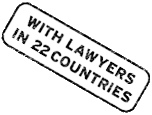ELDH Statement on Syria
The European Lawyers for Democracy and Human Rights (ELDH), with members in 18 European countries, is absolutely opposed to the proposed use of illegal force by Western powers against the Syrian regime.
The US government is leading a call for military action against Syria which will of necessity kill civilians, with the ostensible purpose of showing the Syrian government that by killing large numbers of civilians (allegedly with chemical weapons) they have crossed a “red line” and must be punished.
The British parliament has been recalled, and in the vote taken on Thursday 29 August 2013, Parliament voted against the use of force by the UK, and rejected the government’s justification of “humanitarian intervention” based on protection of civilians, as in Libya. The ELDH notes that this result throws further doubt on the legality of the doctrine of so-called “humanitarian intervention”.
The President of France remains committed to support for the US position.
However, for the United States, the UK and their allies to threaten to and or launch a military strike in reprisal would be a blatant violation of the United Nations Charter. The Charter in Article 2(4) makes it illegal for any country to either use force or the threat of use of force in international relations. The only occasion on which the use of force is legal under the Charter is under Article 51 which allows a State to use force to defend itself if attacked, or with authorisation from the Security Council under Chapter VII. The US, the UK and their allies have not been attacked by Syria, and it is highly unlikely that the Security Council will authorise the use of force at this stage. Russia, which supported the use of force in Libya, rightly considers that the US, UK and France abused the mandate given by the Security Council, and will not accept the similar resolution proposed by the UK with respect to Syria.
The United States and the international community have failed to take constructive steps to promote peace-making efforts which could have brought the crisis in Syria to an end. Powerful local states have instead waged an illegal proxy war to give their “side” a stronger hand in future negotiations, evaluating the situation only in terms of geopolitical concerns. The result has been to show once again that “military solutions” to political and economic problems are no solution at all. In the meantime enmity between religious factions has been enflamed to such a degree that the demonization of each by the other has created fertile ground for genocide and excuses for not negotiating with anyone with “blood on their hands”.
The ELDH insists that according to international law, there should be no intervention whatsoever in circumstances of civil war, such as those which obtain in Syria. The reason the present conflict has continued for two and a half years is that from the start several Middle Eastern states and the US and Russia have intervened in support of the “rebels” or the government.
If it is substantiated that chemical agents such as nerve agents were used in Syria, the ELDH condemns the use of any type of chemical weapons by any party in Syria. Despite US claims of “little doubt that Assad used these weapons”, significant doubt has been expressed by experts who see a real possibility that the “rebels” are trying to set up a situation to get the US to intervene against Assad’s regime. It will be recalled that in May 2013 Carla del Ponte, a member of the U.N. Independent International Commission of Inquiry on Syria, declared that testimony from victims strongly suggested that it was the rebels, not the Syrian government, who used Sarin nerve gas during a recent incident.
Chemical weapons which kill and maim people are illegal and their use violates the laws of war. Beginning with the Hague regulations and treaty of 1899 and 1907 in which chemical and poisoned weapons were first outlawed, and later in the Geneva Protocol of 1925 and Chemical Weapons Convention the illegality of these weapons have been reiterated. The use of chemical weapons is a war crime. The ELDH agrees that the use of these weapons must incur criminal liability for those who used them.
The way to deter the use of chemical weapons is to actually enforce in the International Criminal Court the chemical weapons ban which has become a norm of customary international law.
ELDH insists:
- that only the people of Syria themselves can bring an end to the present conflict, with, if they seek it, diplomatic assistance from the international community
- that any intervention or threat or use of force is illegal unless expressly authorized by the UN Security Council
- that all intervention and support for any of the parties to the present conflict must cease forthwith

